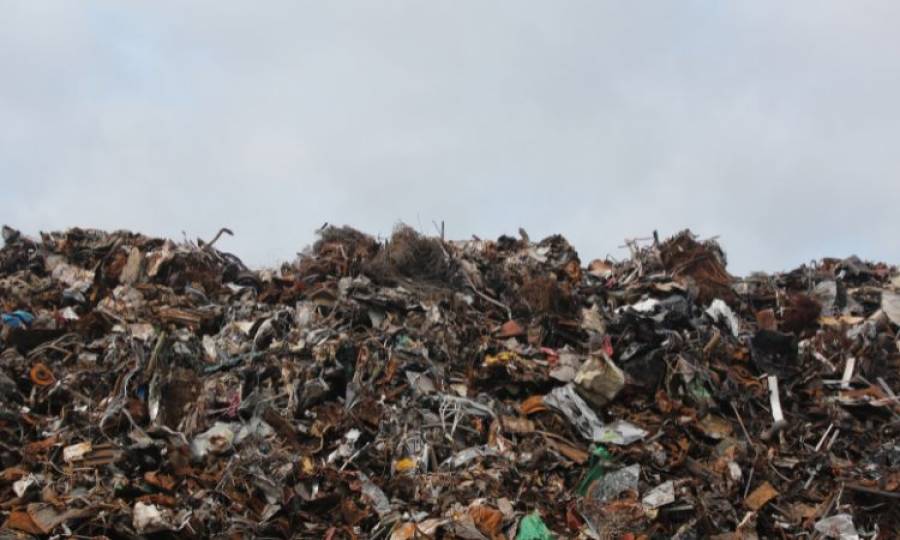Infinite health risk: no categorisation of waste in Karachi

KARACHI: There is no specific treatment for the approximately 1,100 tonnes of garbage created by hospitals in Karachi, as the indiscriminate disposal of medical waste poses a significant threat to public health.
Prof. Dr Noman Ahmed, dean of Architecture and Management Sciences at NED University of Engineering & Technology, highlighted the issue of waste disposal and collection
at the National Waste Management Conference hosted by the National Forum for Environment and Health (NFEH).
Dr Ahmed stated that municipal workers and scavengers in the city were susceptible to fatal infectious infections due to their regular handling of hospital trash without safety safeguards, similar to how municipal waste is handled in Karachi.
He decried the lack of a mechanism to prevent scavengers from removing valuable and recyclable materials from hospital trash, arguing that this practice must end to protect public health. Instead of being disposed of safely, hospital waste was frequently combined with Karachi's ordinary garbage, according to him.
The senior faculty member who participated in numerous studies on waste management procedures emphasised that hospital waste must be scientifically sorted before disposal.
During the coronavirus pandemic, unsafe hospital waste disposal practices severely jeopardised public health, so the government should offer maximum resources and assistance for the creation of an effective hospital waste disposal system.
Dr Ahmed stated that, with the exception of a few large private hospitals in Karachi, the majority of health care facilities lacked a specialised waste management system because their administration wished to do this critical duty on a budget.
Zubair Ahmed Channa, Director of the Sindh Solid Trash Management Board (SSWMB), informed the audience that before the SSWMB was established in 2014, the disposal of the 11,000 tonnes of municipal waste generated daily in Karachi was handled in a very disorganised manner.
Before establishing the SSWMB, he said, private contractors and scavengers who collected waste from different neighbourhoods of the city did not ensure that the trash they collected reached Karachi's two proper landfill sites; instead, the garbage was dumped at various dumping points near residential areas.
He said that SSWMB had assured that up to 9,000 tonnes of waste generated in Karachi daily reached the landfill sites as just a year ago, just 3,000 tonnes of rubbish had been reaching these sites for safe disposal.
He further stated that he had encountered great difficulty persuading the people of certain residential localities and the office-bearers of several industrial estates in Karachi to rely solely on SSWMB for rubbish collection rather than on irregular private contractors.
Due to faulty waste management and disposal in Karachi, it is impossible to utilise municipal waste for valuable reasons such as waste-to-energy and recycling initiatives, according to him.
Wasif Ijlal, the Chief Executive Officer of TransKarachi, stated that the Red Line BRTS project being constructed in Karachi from Malir Halt to Numaish would produce little carbon emissions since it would run on biogas produced by cow manure from Karachi's Cattle Colony.
He predicted that the Red Line BRTS would become operational within the next three years, as it would eliminate the problem of the dangerous disposal of Cattle Colony manure into the ocean.
He stated that the usage of biogas for the Red Line bus service would reduce its fuel costs as it would be the first BRTS in Pakistan to operate without government subsidies.
Naeem Qureshi, President of the National Foundation for Environmental Health, stated that his non-profit organisation convened the meeting to find a permanent solution to the municipal and hazardous garbage generated in Karachi to protect its residents' health.
Nasir Hussain, Provincial Minister, Sindh, told the audience that the efficient waste collecting system of the SSWMB would be installed in all Karachi districts for daily garbage collection and disposal within the next few weeks.
After Karachi's trash problem is resolved, the SSWMB will expand its waste disposal system to other major cities in Sindh, according to him.
He stated that the Sindh government was determined to create Karachi, a clean, green, fully developed city. As soon as the monsoon rains end, its roads and civic infrastructure will be repaired and refurbished for this purpose.
Advertisement
Trending
Popular
Aging: New study identifies key lifestyle, environmental factors ...
-
Hair loss: Discovery uncovers key stem ...
08:00 PM, 25 Feb, 2025 -
Broccoli sprout compound may help lower ...
11:31 AM, 25 Feb, 2025 -
Gas Pain vs. Heart Attack: How to tell ...
09:00 PM, 22 Feb, 2025 -
Coconut oil supplement shows promise ...
08:00 PM, 20 Feb, 2025



